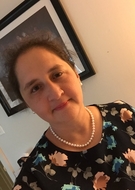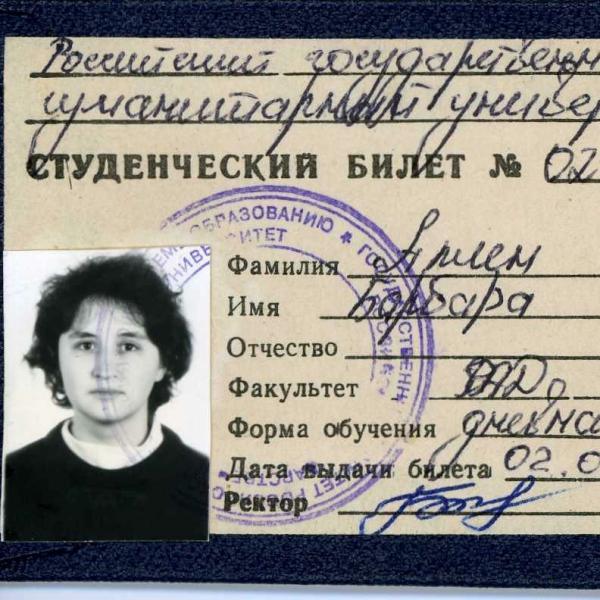Barbara Allen

Education:
Ph.D. in Russian and Soviet History, Indiana University Bloomington
M.A. in Russian and Soviet History, Indiana University Bloomington
B.A. in Modern European History, University of North Carolina at Chapel Hill
Barbara Allen is an Associate Professor of history at La Salle University and a historian of Russia and the Soviet Union, specializing in the history of the Russian revolutionary movement and the early Soviet regime.
When did you first develop an interest in Slavic, East European and Eurasian Studies?
As a child, I loved reading about places far in place and time from my rural North Carolina heritage. The first book I remember reading about Russia was Harold Lamb’s Chief of the Cossacks (Random House, 1959), a children’s book about Stenka Razin. In my teenage years, I was skeptical toward Ronald Reagan’s Cold War rhetoric. Mikhail Gorbachev’s reforms made an impression upon me and I decided to study Russian in college in order to pursue a career in Russian and Soviet studies. At the University of North Carolina Chapel Hill, the history courses drew my greatest interest, because of the unsolved mysteries they raised about Russian history.
What support have you received throughout your career (from ASEEES / other societies / federal support / etc.) that has allowed you to advance your scholarship?
Crucial to completion of my dissertation research were IREX and Fulbright-Hays dissertation research fellowships. Without these, I would have found it difficult to spend the length of time in Russia necessary to receive access to Central FSB archive files on Worker Oppositionists and Party Control Commission personal files for party members who had been investigated. These sources were essential to support the argument I made in my first monograph, a biography of Workers’ Opposition leader Alexander Shlyapnikov. This was published by Brill in cloth (2015) and Haymarket Books in paperback (2016) as Alexander Shlyapnikov, 1885-1937: Life of an Old Bolshevik.
What is your current research/work project?
My work up to now has not strayed far from Alexander Shlyapnikov and the Workers’ Opposition. Most of the Russian 1917 revolutionary documents in the collection I have just published with Haymarket were either authored or collected and first published in Russian by Shlyapnikov. My next book will be a collection of documents of the Workers’ Opposition, which is under contract with Brill. Recently, I have begun researching provincial Worker Oppositionist groups, such as those in Ukraine and Samara, and the fate of those oppositionists in the Stalinist Terror of the 1930s.
What does your ASEEES membership mean to you? How has your involvement with ASEEES helped to further your career?
Recently I took the plunge to become a lifetime member of ASEEES. More than any other professional organization, it reflects my professional identity. My first major at UNC-Chapel Hill was Russian language and literature, from which I switched to Russian and East European area studies, and graduated with a History degree. In graduate school, I minored in Russian and East European studies and took some courses in Central Asian history, so the association’s interdisciplinary nature fits my career trajectory well and offers opportunities to benefit from learning about research in other disciplines and regions of the area influenced by Russian policies and historical developments. ASEEES conventions are the venues where I have most often presented my research and gathered feedback.
What do you believe is the most important impact ASEEES has on the field?
It brings together scholars from across disciplines and from all over the world to inform one another’s research on the regions we study. The conventions provide helpful places to present current research and receive feedback. Usually, there is also the opportunity to connect with old friends and meet new people who bring new and fascinating perspectives to bear on the study of the region. For me, belonging to the national association and smaller groups operating under its umbrella also holds meaning because it allows me to make service contributions to my profession.
Besides your professional work, what other interests and/or hobbies do you enjoy?
I enjoy traveling to Eurasia and other places and touring historical and cultural sites and places of natural wonder. My favorite leisure reading includes historical fiction such as novels by Boris Akunin and C.P. Lesley and contemporary fiction by Olga Grushin.
